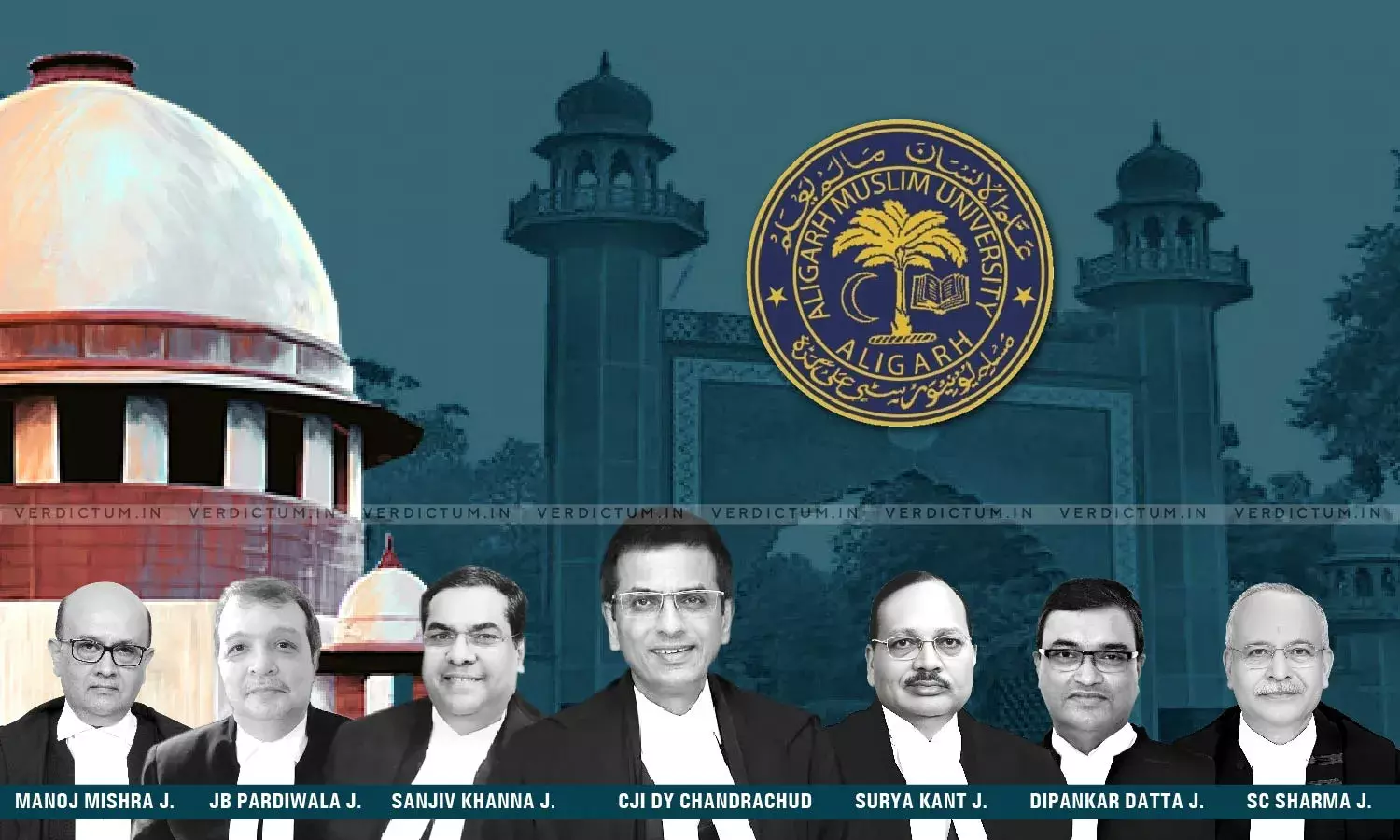Constitution Bench Hearing| Muslim Families Send Girl Students To AMU Due To Its Minority Status: SG Objects To Petitioner's Argument Saying It Belittles Muslim Women

On the third day of hearing before the Constitution Bench in the matter pertaining to the minority status of the Aligarh Muslim University (AMU), Advocate Shadan Farasat appearing for petitioners argued that if the University ceases to be a minority institution, then that would hamper the education of Muslim women in India. Solicitor General Tushar Mehta objected to the argument saying that it belittles Muslim women.
Elaborating on his contention, Farsat argued, “The minority identity is relevant to the minority. This is specially true for women students…When it comes to girl education, the existence of the minority status of AMU is very relevant and a very important consideration in families sending their women to this institution and possibly to access higher education at all. If the institution ceases to be Muslim minority institution, it may very well hamper the higher education of Muslim women in India”.
Justice Dipankar Datta then said, “Over the last 100 years, without the minority institution tag, it has continued to be an institution of national importance…How does it matter to the people whether it is a minority institution or not? It is only the brand name- AMU".
Then Farsat argued, “Until Basha, it was considered a minority institution. 81 amendment (1981) sought to undo it. Thereafter it has been litigated through, there has always been a stay. So really speaking, today, because of the operation of the status quo order of your lordships on the 81 amendment, it continues to be a minority institution. In fact, if your lordships uphold Basha, for the first time, now it will become a non-minority institution”.
“The last argument may have a counterpoint, we will not go into that…that may not be a purely legal argument”, retorted Justice Khanna.
To which Farsat replied that it may not be a purely legal argument, but while interpreting the word ‘establish’ in Article 30 of the Constitution of India, then the social circumstances will have to be considered.
“If something can promote Muslim girl education and ensure the minority status, there is no harm in it in a secular…”, he added further.
Solicitor General Tushar Mehta intervened to say, “Muslim women are studying everywhere. Let’s not belittle them. They are studying in every corner of the Country”.
"It is a fact in the community. These are sociological aspects. Of course, your lordships will not make a judicial finding on it, but it is a fact that the community send their children generally, and women specifically because of the minority status. It is a fact", Advocate Farasat responded.
Then Farsat sought permission from the Court to produce a list which he referred to as an illustrious list of women alumni of AMU to establish his point further.
"The point I am making is, the minority status and women's education have gone together. And it has really fostered education among Muslims, in particular, Muslim women", Farasat said while concluding.
The Constitution Bench hearing the matter comprises Chief Justice DY Chandrachud, Justice Sanjiv Khanna, Justice Surya Kant, Justice JB Pardiwala, Justice Dipankar Datta, Justice Manoj Misra and Justice Satish Chandra Sharma.
During the hearing yesterday, Senior Advocate Kapil Sibal had inter alia argued that Article 30 of the Constitution was framed since beneficial provisions like reservation for SC and ST could not be extended to religious minorities due to the bar under Article 15. The Constitution Bench will now re-assemble on January 23.

